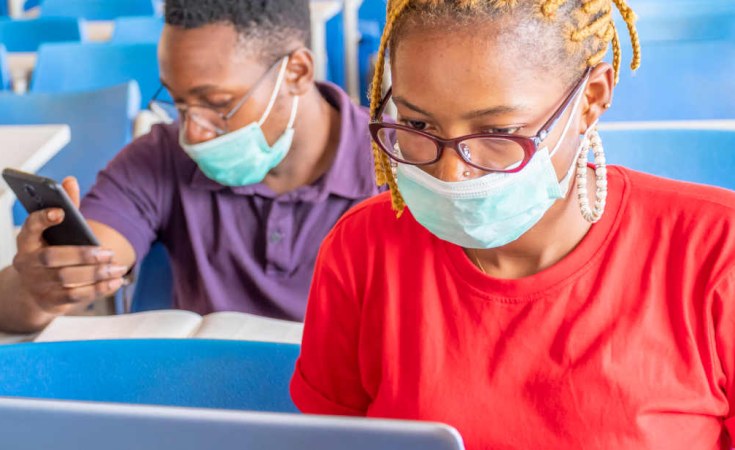How can people in Africa acquire the skills to digitize work and help diversify and grow economies?
This was one of the main questions posed at an online colloquium on Digital Technical and Vocational Education and Training (DTVET) co-organized by the Association for the Development of Education in Africa (ADEA) and Festo Didactic on November 26.
Digital learning tools will be key to unlocking the potential of African youths, especially in the aftermath of the COVID-19 pandemic, participants heard. But learners and teachers need support from the private sector and development partners.
Over 200 participants discussed innovative solutions to support DTVET in Africa. They included representatives from several African countries - Angola, Côte d'Ivoire, Egypt, Rwanda, and Tunisia. Regional and international development partners also joined the discussion, such as the African Development Bank, the UNESCO-UNEVOC International Centre for Technical and Vocational Education and Training, and German government development agency GIZ, as well as civil society and private sector representatives.
Particular attention was paid to developing skills that enable people to adapt to rapidly changing labour market conditions.
"Future demand is for workers with a newest of skills to succeed in the world of work. Currently, that need is not being sufficiently met, especially for soft skills," said Albert Nsengiyumva, Executive Secretary of ADEA. He said these skills were key to strengthen TVET policies and mainstream digitalization. Political commitment and strong strategic public-private-partnerships are equally important, he added.
Martha Phiri, Director for Agriculture, Human and Social Development at the African Development Bank, said the Bank is investing in training millions of young people through its Jobs for Youth in Africa Strategy and other projects.
Dr. Nader Imani, Executive Vice President Global Education Projects at Festo Didactic said: "Digital education is the change maker to provide education for all. A balance between sufficient 'knowing' and necessary 'doing' will create the basis for digital skills for employability."
Festo, a global provider of equipment and solutions for technical education, wants to support institutions to adapt their curricula to the digital age, via the learning platform Festo Learning Experience (LX). The Festo LX provides didactic learning resources for various technical training professions in small nuggets that can be individually compiled into courses and entire learning paths.
Digitization requires new learning methods, new profiles and skills of teachers in vocational education training. In Africa, a new educational approach is necessary to ensure that nobody is left behind. It is the only continent in the world with a labour force that is growing exponentially. However, a mismatch between skills supply and demand means youth unemployment is a major concern.
By 2050 half of all Africans will be under 25. It is therefore crucial that this burgeoning young population benefits from artificial intelligence, cloud computing and wireless technologies to allow Africa's youth to compete with their peers in the developed world.
This virtual colloquium was the first of several events leading up to the ADEA 2021 High-Level Policy Dialogue on TVET and the 4th Industrial Revolution (4IR).


